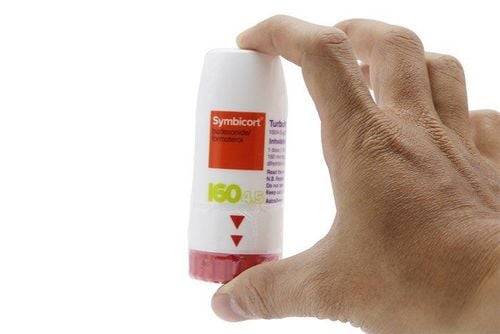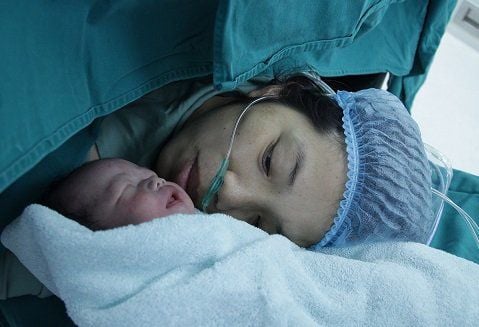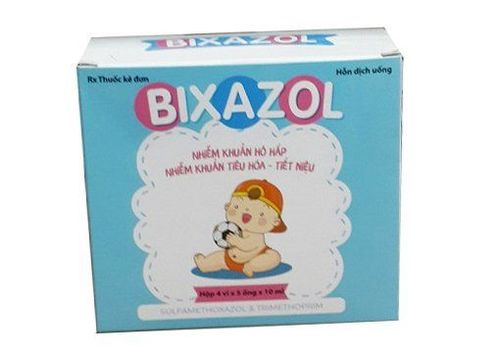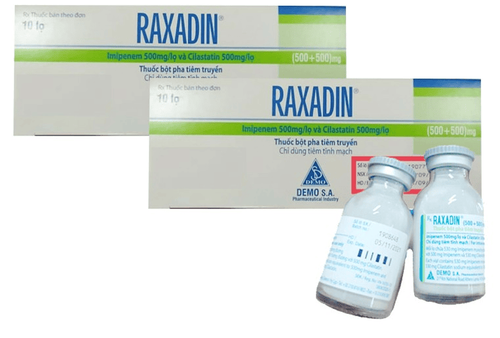This is an automatically translated article.
The article was professionally consulted by Specialist Doctor Obstetrician and Gynecologist - Department of Obstetrics and Gynecology - Vinmec Hai Phong International General Hospital
Allergic rhinitis during pregnancy is a condition that often occurs during pregnancy, which significantly affects the health of mother and baby if not treated promptly and properly.
1. What is Allergic Rhinitis During Pregnancy?
Pregnant women have symptoms of nasal congestion, runny nose, sneezing, clear runny nose, itchy nose during pregnancy, this condition is called allergic rhinitis of pregnancy. The disease manifests as persistent nasal congestion, accompanied by liquid or viscous nasal discharge. Nasal congestion can lead to mouth breathing at night and reduce sleep quality, causing a lack of oxygen to the body. Allergic rhinitis of pregnancy is nasal symptoms during pregnancy, lasting 6 or more weeks with no other signs of respiratory infection and unknown allergy cause, which disappear completely within a short period of time. within two weeks of giving birth. Mechanism of allergic rhinitis during pregnancy. During pregnancy, increased estrogen inhibits acetylcholine esterase, causing cholinergic response to increase, thus increasing the secretion of oil glands circulating nasal hair and blood vessels in the nasal mucosa, or worse, causing congestion and edema of the nasal mucosa. . Allergic rhinitis usually exists before pregnancy, in some cases first appearing during pregnancy. Pre-existing rhinitis may worsen, improve, or remain unchanged during pregnancy. Common causes of allergic rhinitis include dust mites, molds, pollen, animal dander, etc.

2. How does allergic rhinitis affect pregnancy?
Transient rhinitis of pregnancy may not directly affect the fetus. Uncontrolled allergic rhinitis can indirectly affect the fetus through sleep quality, or cause stress and fatigue in pregnant women, in more severe cases can cause superinfection leading to chronic rhinitis. , respiratory infections, pharyngitis during pregnancy. In case of persistent rhinitis, without definitive treatment, it can lead to a decrease in oxygen supply in pregnant women while sleeping, affecting the amount of oxygen supplied to the fetus, thereby increasing the risk of gestational hypertension, preeclampsia and intrauterine growth retardation, fetal distress, miscarriage. Therefore, proper treatment of rhinitis during pregnancy can help a woman is extremely important.
3. What medicine to take with allergic rhinitis during pregnancy?
Pregnant women need to be very careful when using drugs, especially allergic rhinitis in pregnant women in the first 3 months.
When there are symptoms of the disease, it is necessary to go to the doctor and take the medicine as prescribed by the doctor because the use of the drug needs to be more cautious because pregnant women are very sensitive. Improper drug use can have unfortunate and dangerous consequences for both mother and child. Daily nasal hygiene is the most important for allergic rhinitis, in severe cases, some medications can be added according to the indications and doses prescribed by the doctor.

Drugs that can be used in the treatment of allergic rhinitis
cromolyn sodium is the first drug used in the treatment of allergic rhinitis in pregnant women today due to its high safety. Sodium cromolyn has been shown to be safe, with no known risk of birth defects with inhaled cromolyn sodium. The drug is in the form of a daily spray, which needs to be used regularly, several times a day. This can be a good starting point for many patients. However, in severe and prolonged cases, it is necessary to combine with other drugs to ensure quick recovery without affecting the health of the mother as well as the fetus. Glucocorticoids Nasal Spray: Intranasal glucocorticoids are highly effective for allergic rhinitis and are considered appropriate for use during pregnancy. Pregnant women should use the lowest effective dose to avoid unwanted effects. Antihistamines: Antihistamines are less effective in the treatment of allergic rhinitis than nasal glucocorticoids. Several studies have evaluated the safety of antihistamines during pregnancy. Second-generation antihistamines are safer because they have less sedation and fewer side effects than first-generation antihistamines, so they are preferred for treatment of allergic rhinitis during pregnancy. Vasoconstrictor drugs. Available in oral and spray form. A decongestant spray may be used for a short time (eg, three days or less) for temporary relief of severe nasal congestion. However, patients can become dependent on the drug if used for a long time. In particular, the use of oral decongestants should be avoided during the first 3 months of pregnancy because they can cause birth defects in the fetus. Pregnant women with allergic rhinitis can affect the development of the fetus. Therefore, mothers need to pay special attention to prevention during this period. The comprehensive maternity care program at Vinmec is scientifically designed with routine examination and testing schedules throughout pregnancy to help diagnose and treat early to avoid risks of harm to mother and baby.
Please dial HOTLINE for more information or register for an appointment HERE. Download MyVinmec app to make appointments faster and to manage your bookings easily.













